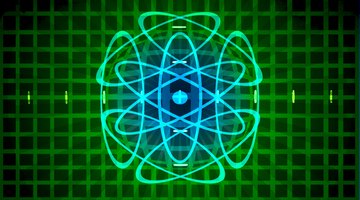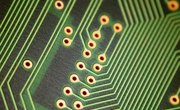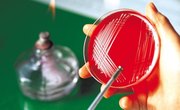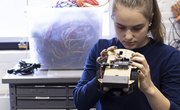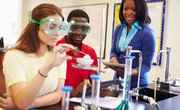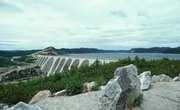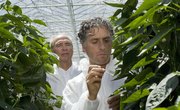Teachers must stress the importance of studying physics because students may not fully appreciate the advantages of physics in everyday life. Physics is one of the fields of knowledge that underlies the physical universe and applies constantly to people's everyday lives. The advantages of physics in everyday life can be as basic as the conversion of electrical energy to heat to make the morning coffee or as complex as plotting a space shuttle flight from Earth into orbit. Even though some concepts are initially difficult to grasp, the reward in terms of satisfaction and knowledge can make all the effort worth it given the incalculable importance of physics in science.
Making Technological Advances
The importance of studying physics can clearly be see in the development of cutting edge technologies. Advances in technology are often based on discoveries in physics and inventions based on a new interpretation of existing physics knowledge, thus demonstrating the importance of physics in science. For example, Wilhelm Rontgen discovered X-rays more than a century ago, and X-ray machines are now a piece of medical equipment taken completely for granted, designed and perfected by physicists and engineers working off the initial research. In the first half of the 20th century, Enrico Fermi studied existing knowledge on nuclear fission and experimented until he achieved the first nuclear chain reaction. Now the advantages of physics in everyday life are seen in the operation of nuclear energy plants that produce electricity to power homes and businesses worldwide.
Understanding the World
Not all of the benefits of physics involve material things because research and knowledge are themselves important. Astrophysics, quantum mechanics and investigations into atomic structure and energy have been able to explain much of the way the world works, even down to the original birth of the universe. Of course, the research results can also be used as the basis of new technology, as previously mentioned. At an individual level, studying physics can be personally rewarding as students begin to understand everyday objects and occurrences in terms of the concepts of physics that underlie them, such as acceleration of a car, gravity causing an apple to fall from the tree or electricity powering appliances.
Integrating with Other Disciplines
Physics is not a standalone field. The importance of physics in science extend to a wide variety of fields. For example, medical students need to know some basic physics to understand how blood and air flows in the body, taking into account concepts such as pressure, velocity of flow and changes in resistance to flow. Physics is also integral to engineering and is generally relevant for all the sciences.
Enjoying the Intellectual Challenge
Many people are afraid to study physics because it has a reputation as a difficult subject. Others don't understand the importance of studying physics or the advantages of physics in everyday life. Specific aspects of physics that many people find daunting include the need to understand different mathematical equations and graphs and then be able to translate those concepts into real life. While there may be easier subjects out there, one of the values of studying physics is that it is intrinsically challenging and therefore also extremely rewarding when a student understands it. The best place to learn physics is through formal education, as the concepts are much harder to grasp in self-directed learning.
Related Articles
References
- Cornell University: Why Study Physics?
- Kent State University: Famous Physicists
- Nobelprize.org: Wilhelm Conrad Röntgen - Biographical
- International Journal of Environmental and Science Education: What Makes Physics Difficult?
- University of Wisconsin LaCrosse: Why Study Physics
- Bowling Green University: Physics and Astronomy
Resources
Writer Bio
Jillian O'Keeffe has been a freelance writer since 2009. Her work appears in regional Irish newspapers including "The Connacht Tribune" and the "Sentinel." O'Keeffe has a Master of Arts in journalism from the National University of Ireland, Galway and a Bachelor of Science in microbiology from University College Cork.

